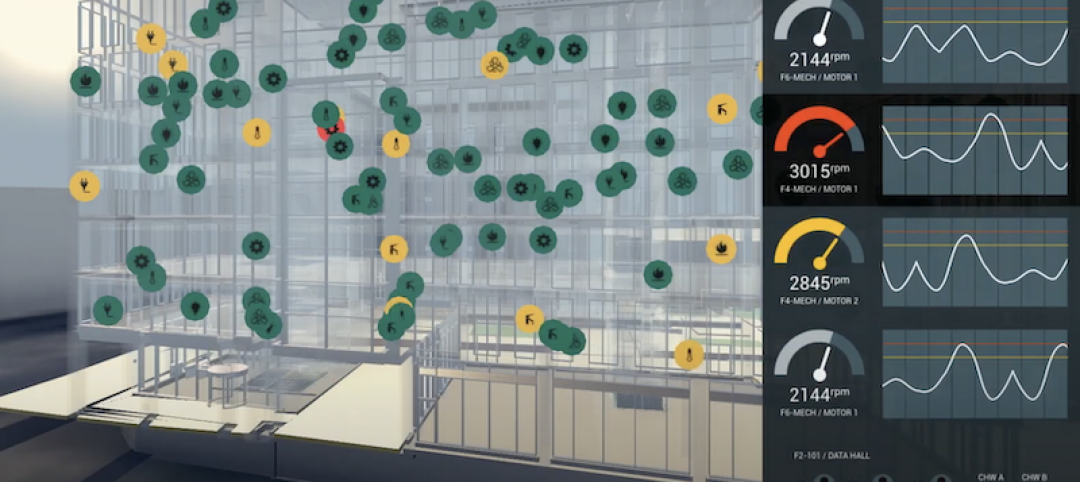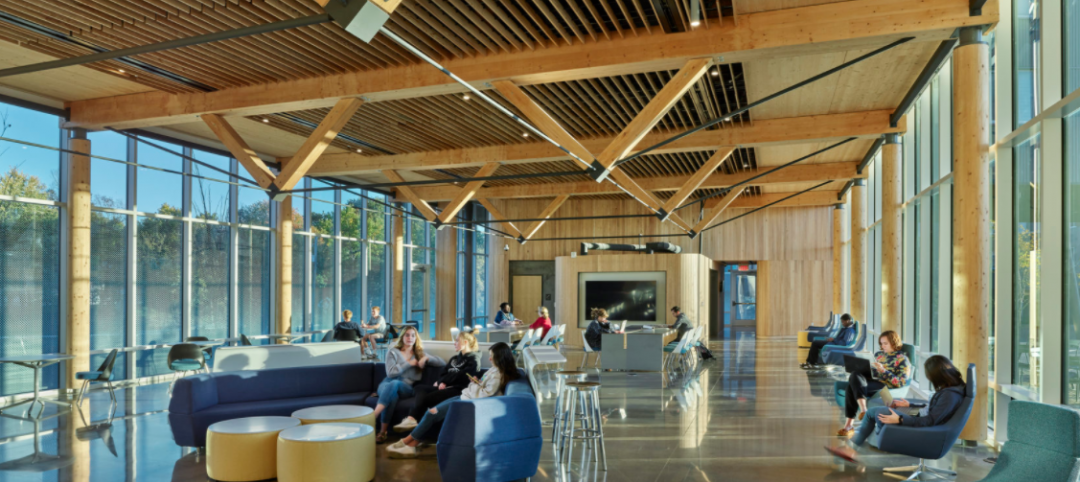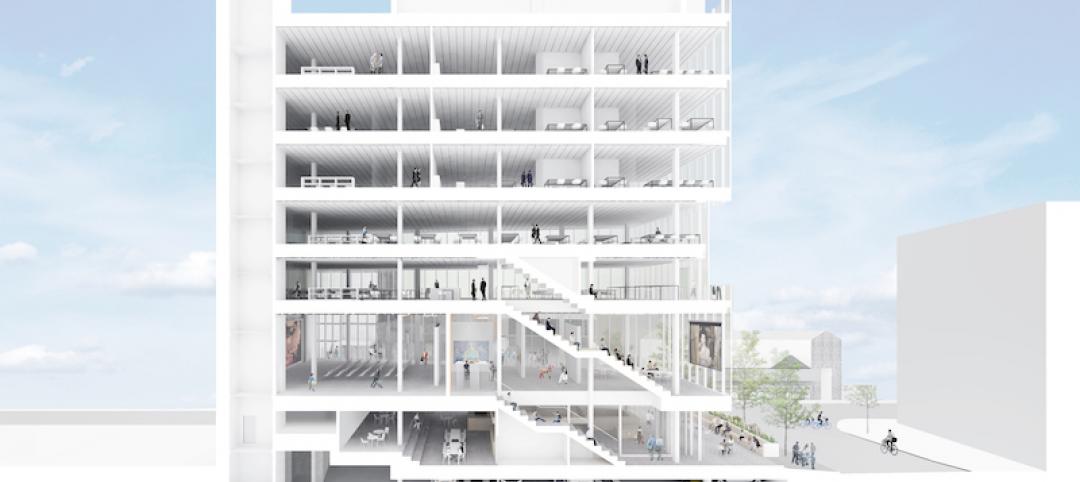The Old Patent Office Building in Washington, D.C., completed in 1867, houses two Smithsonian Institution museums—the National Portrait Gallery and the American Art Museum. Collections include portraits of all U.S. presidents, along with paintings, sculptures, prints, and drawings of numerous historic figures from American history, and the works of more than 7,000 American artists. Following a major renovation, these national treasures, as well as long-hidden architectural features of the 380,000-sf Greek Revival building, can now be viewed in natural light for the first time in decades.
The restoration project Building Team, led by Hartman-Cox Architects, Washington, restored and showcased elements such as the porticos modeled after the Parthenon in Athens, a curving double staircase, colonnades, vaulted galleries, massive windows, and block-long skylights. The effort also restored full visitor access and circulation on all three floors by relocating staff offices to an adjacent building, while opening up 40,000 sf for galleries by removing infill walls and partitions.
The Building Team made extraordinary efforts to use new preservation technologies for restoration of the historic fabric of the building and to re-use historic materials. This included the replacement of the roof with a standing and flat-seam copper exterior. More than 550 windows were replaced, each with an energy shield and UV filter to protect the artworks, while the exterior layer was done in mouth-blown glass, emulating the look of historic glass.
Original marble pavers were salvaged, numbered, restored and reinstalled throughout the building. White oak wood floors consistent with the original design were installed in the remainder of the building.
The project also added several new spaces, two of which are open to visitors—the Lunder Conservation Center and the Luce Foundation Center for American Art. In addition, the Robert and Arlene Kogod Courtyard and the Nan Tucker McEvoy Auditorium, a 346-seat multipurpose space with advanced audio-visual capabilities that was constructed beneath the courtyard, add to the museum's versatility. New monumental stairs and an elevator were added to connect the public entrances at G Street to the auditorium.
A key component of the project was the wholesale replacement of mechanical and electric systems to bring the facility up to current museum standards for lighting and temperature control. As a solid masonry building, however, there was no plenum space in which to place the new systems. The Building Team concealed the M/E components within former ventilation and chimney shafts and under the floors. This set up required modification to the chases to accommodate ductwork and piping. New boilers, chillers, cooling towers, air-handling units, fan coil units, pumps, duct work, and piping were installed so that they would not intrude within the gallery spaces.
Infrastructure modernization included a new telecommunications system with new fiber optic and copper cable, a new fire alarm system (including addressable smoke and heat detectors), and upgrades to the existing fire protection system. A new security system, including glass break and shock sensors, motion detectors, and cameras, will help guard the priceless exhibits.
Restoration of architectural detailing included replacement of worn encaustic and geometric tiles in the Great Hall with handmade, historically accurate, multi-colored replicas produced in England. On the exterior, workers cleaned, patched, and pointed the stone facades.
“The architectural details of the Smithsonian Portrait Gallery restoration were extremely carefully thought out,” said Walker Johnson FAIA, honorary chair of BD+C's Reconstruction Awards program. “The inclusion of mechanical elements within this bearing wall structure is an indication of the length the Building Team went to maintain the original design while still modernizing and restoring the building.”
All told, Hartman-Cox Architects and construction manager Bovis Lend Lease coordinated architects, engineers, and designers from more than one dozen consulting firms representing more than 20 different design disciplines, and prepared four different prime construction contracts for the $283 million renovation. The revitalized building, a major focus of a revitalized downtown Washington, is once again a showpiece for the nation's capital.
Related Stories
Giants 400 | Aug 30, 2021
2021 Giants 400 Report: Ranking the largest architecture, engineering, and construction firms in the U.S.
The 2021 Giants 400 Report includes more than 130 rankings across 25 building sectors and specialty categories.
Resiliency | Aug 19, 2021
White paper outlines cost-effective flood protection approaches for building owners
A new white paper from Walter P Moore offers an in-depth review of the flood protection process and proven approaches.
Cultural Facilities | Aug 2, 2021
A new venue for the San Diego Symphony’s outdoor performances opens this week
Rady Shell at Jacobs Park was funded almost entirely by private donors.
Cultural Facilities | Jun 28, 2021
Maine’s Children’s Museum & Theatre moves into new location that doubles its size
Interactive exhibits are among its features.
Resiliency | Jun 24, 2021
Oceanographer John Englander talks resiliency and buildings [new on HorizonTV]
New on HorizonTV, oceanographer John Englander discusses his latest book, which warns that, regardless of resilience efforts, sea levels will rise by meters in the coming decades. Adaptation, he says, is the key to future building design and construction.
Multifamily Housing | Jun 3, 2021
Student Housing Trends 2021-2022
In this exclusive video interview for HorizonTV, Fred Pierce, CEO of Pierce Education Properties, developer and manager of off-campus student residences, chats with Rob Cassidy, Editor, MULTIFAMILY Design + Construction about student housing during the pandemic and what to expect for on-campus and off-campus housing in Fall 2021 and into 2022.
Digital Twin | May 24, 2021
Digital twin’s value propositions for the built environment, explained
Ernst & Young’s white paper makes its cases for the technology’s myriad benefits.
Wood | May 14, 2021
What's next for mass timber design?
An architect who has worked on some of the nation's largest and most significant mass timber construction projects shares his thoughts on the latest design trends and innovations in mass timber.
Cultural Facilities | Apr 1, 2021
A Connecticut firm deploys design to assist underserved people and communities
Hartford, Conn.-based JCJ Architecture traces its roots to 1936, when the U.S. was just coming out of an economic depression and its unemployment rate was still 14%. In 2021, with the country trying to recover economically from the impact of the coronavirus, and with questions about social inequity entering the public debate as rarely before, JCJ has focused its design work on projects and clients that are committed to social responsibility and advocacy, particularly for underserved or marginalized communities.
Cultural Facilities | Mar 1, 2021
Moise Safra Center completes in New York City
The project will act as a second home for the Jewish community it serves.


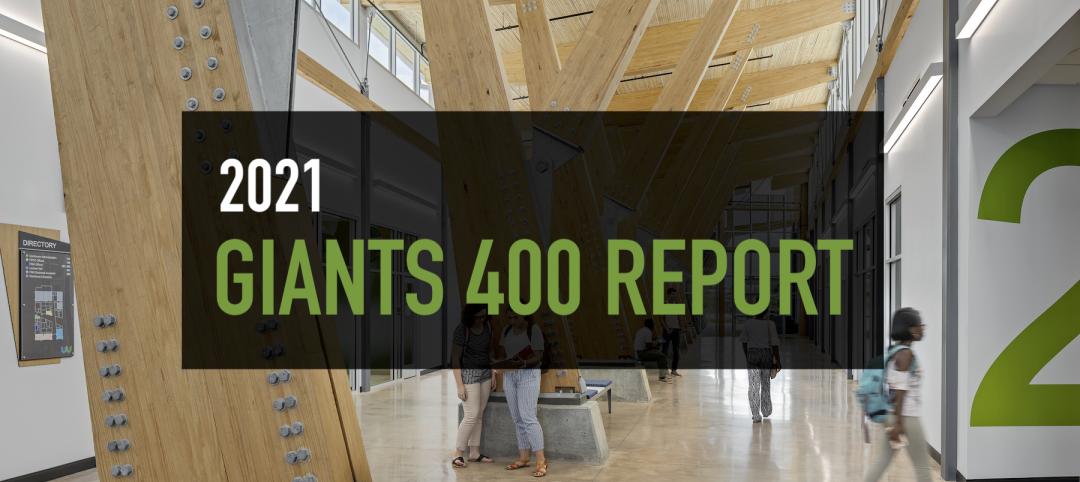
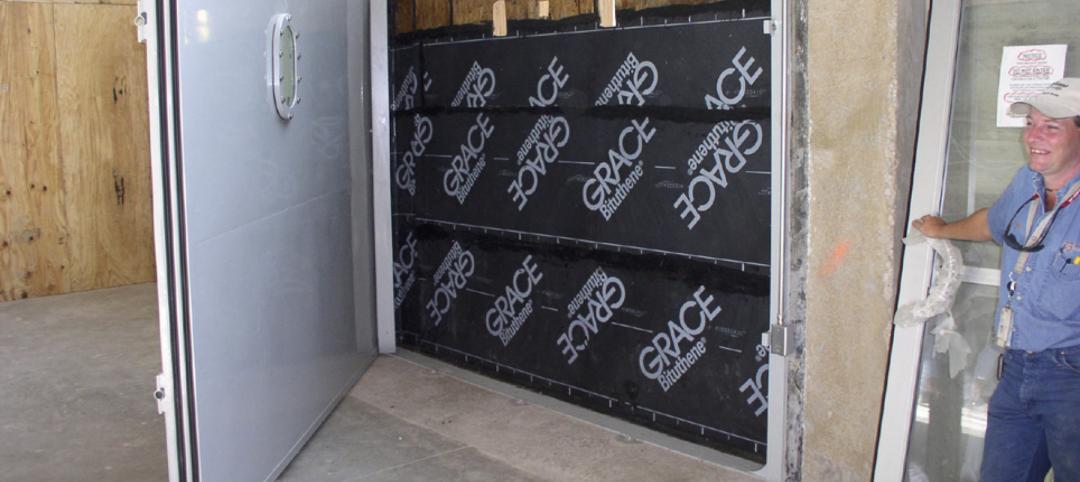
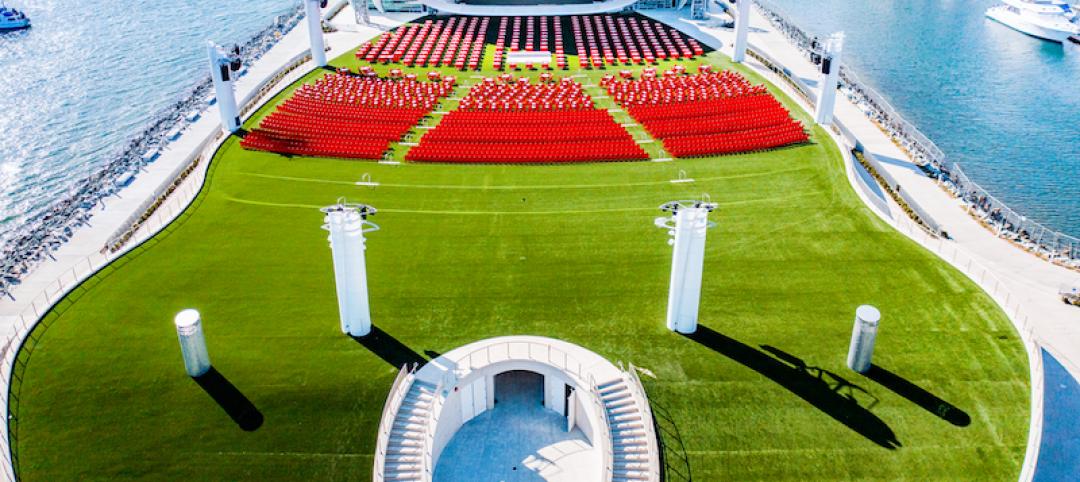

![Oceanographer John Englander talks resiliency and buildings [new on HorizonTV] Oceanographer John Englander talks resiliency and buildings [new on HorizonTV]](/sites/default/files/styles/list_big/public/Oceanographer%20John%20Englander%20Talks%20Resiliency%20and%20Buildings%20YT%20new_0.jpg?itok=enJ1TWJ8)

